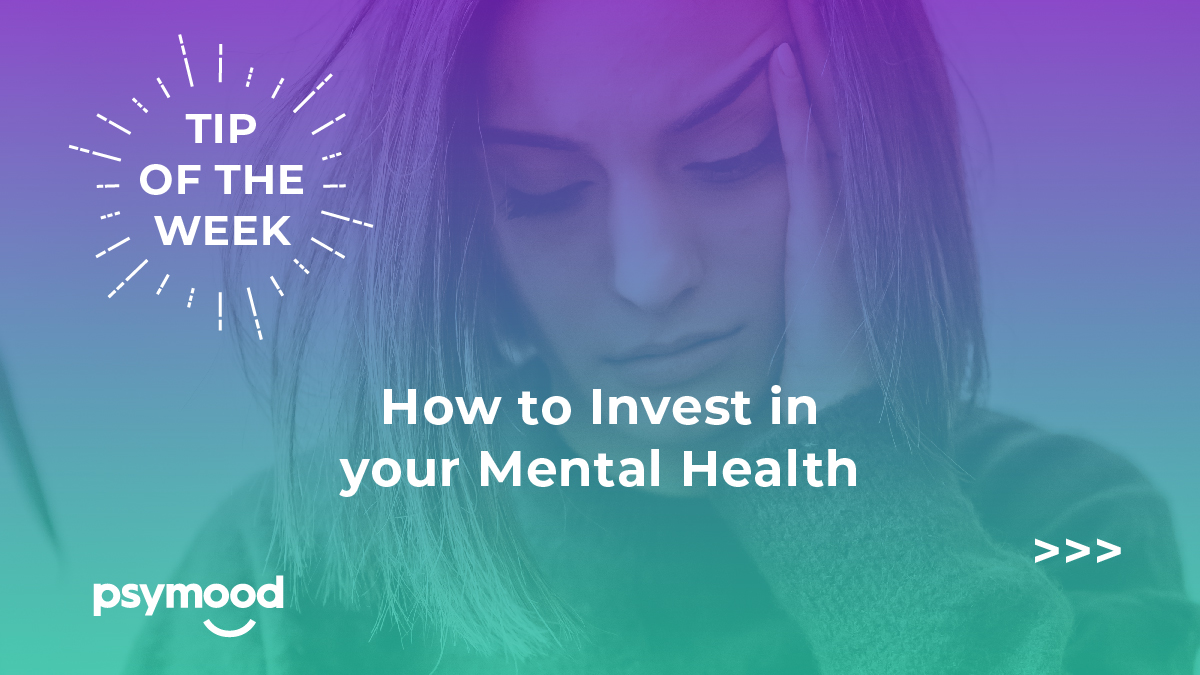How to Invest in your Mental Health
As the popular saying goes, “Health is your greatest wealth.”
More so, we can say that mental health is one of your greatest assets. Good mental health can help you focus at work, overcome obstacles, build stronger relationships and help with illness recovery.
Overall if you are mentally well, you are able to live a more fulfilling life. So it is never a bad time to start investing in your mental health.
Here are five ways in which you can start investing in your mental health.
Maintain Work-Life Balance
It is no secret that long work hours lead to burnout. The impacts of which are increased stress and anxiety. A recent study has shown that poor work-life balance increases risk for health conditions like sleep problems, digestive disorders, and mental health problems. This is especially true for people who work longer shifts or on nights and weekends.
To avoid having work spill over into your personal life, create “work talk free zones”. Set time boundaries, and schedule non work-related recreational activities outside of work hours. Maintaining good work life balance involves both controlling the time spent at work as well as staying busy with hobbies and interests in your free time.
Build Social Connections
Loneliness can be harmful to your mental health. Long-term it can lead to feelings of depression and anxiety. In fact a recent study found that poor social support makes it harder to recover from mental illnesses, while a strong social support system improves likelihood of recovery.
Building long lasting and meaningful social connections can provide the feeling of hope in tough times. It is important to note that you don’t have a lot of relationships, just a handful of people that you can lean on. Try group activities in the community and meet people with shared interests. Maintain communication with old friends and family members.
Find Humour
The benefits of laughter are well documented. Studies have shown that when your body laughs, levels of stress hormones decrease, there is increased activity in the brain’s reward system and endorphins—the body’s natural pain blockers—are released. Incorporating humour into your daily life can lead to improved mood and anxiety relief.
Reach out to someone who shares your sense of humour. Talk about funny things that have happened to you recently or share stories from the past. If you don’t feel like talking, invite a friend to watch a funny TV show or movie. If you want to be an expert, try laughter yoga!
Seek Animal Companion
Many pet owners believe their pets bring them happiness and emotional support. There has also been a case of using pets to relieve stress as well as help reduce feelings of depression and anxiety. A recent study showed that for people receiving treatment for mental illnesses, animal-assisted interventions reduce anger, anxiety, depression, and general distress, while improving the ability to socialize.
In fact, workplaces have also started to adopt pet-friendly environments.
If you are not sure you can handle the full time commitment of owning a pet, take a walk in your community dog parks or visit a dog café. You can also take time out to volunteer at an animal shelter.
Practice Mindfulness
Sometimes feelings can be too overwhelming!
Practicing mindful techniques are useful when trying to control negative emotions. Studies have shown that meditation is linked to stress-related brain activity. Mindfulness teaches you to keep an open mind and not react negatively if things do not go as per plan. It is a way of overcoming the urge to have an instant emotional or behavioural response.
Next time you are faced with an unexpected situation try to take a pause and count to ten, think about the situation and then react. Letting bad thoughts pass by, creates more room for the good. Try lighting a candle and meditating for a few minutes each day to help clear your mind.
Being aware of your mental health needs is the first step to improvement. If you feel the need to talk to someone about your mental health, PsyMood is here for you.
Our mental health specialists can speak your language and understand your culture. Sign up today to speak with a specialist. We offer sessions at any time, anyplace!



Recent Comments